The ‘Karar Oi Louho Kopat’ controversy
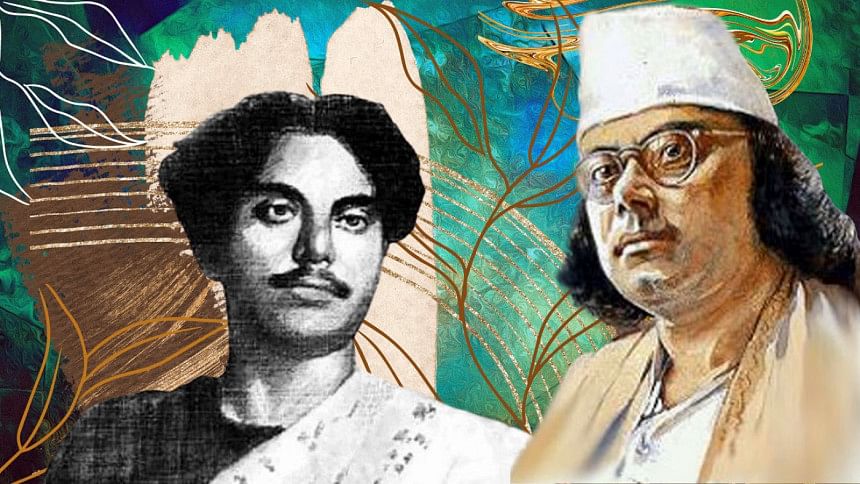
When poet Kazi Nazrul Islam was alive, he told many of his friends to record his songs using their own dexterity in rendition. They were allowed to use their own style of singing (or gayaki), but he insisted on keeping his tune intact. His angry statement when someone took too many liberties with his song was, "I should be recognised in my song, do not stampede it with your lorry." The stampede happened. And it happened in a film titled Pippa. Pippa is an amphibious vehicle which was handled by a chivalrous Indian soldier, Balram Singh, leading to the victory of India over Pakistan in the 1971 war to liberate Bangladesh. In the film, when Balram meets the Mukti Bahini soldiers, they are singing Karar Oi Louho Kopat. However, using AR Rahman's composition and tune, the amphibious vehicle not only trampled the song, but also crushed its spirit.
In one of my own translations of the song (in my 2010 translation book The Return of Laili), I attempted this version:
"Those iron walls of prison
Break them! Remove them!
Bloodstained chains
The dias of worship!
Oh young sun
Play the dangerous flute
Let the remains of the carnage
Fly over the walls of the prison gate…"
Written in 1921, after the arrest of Chittaranjan Das and recorded later by revered artist Girin Chakravarty, the song has a very powerful message against British rule. Nazrul had published this song in his book Bhangar Gaan even before he was taken to prison by the British government for his allegedly inciteful writings. When Chittaranjan Das was arrested, his wife Basanti Debi sent their son, Sukumar Ranjan Das, to ask for a poem from Nazrul Islam. They met at the office of Upasana magazine. Comrade Muzaffar writes, of this song, that a few of them were chatting loudly while Nazrul had his face turned to the wall and took a few minutes to write this poem. He then read it out to Sukumar Ranjan Das, who was very happy. It was around the same time that the poem Bidrohi had been composed, which was published in Nazrul's Bhangar Gaan in January 1922.
The tune of Karar Oi Louho Kopat is synchronised with the lyrics, which has been a specialty of Kazi Nazrul Islam, who has written and composed more than 3,000 songs under 16-17 genres. This particular song is Kazi Nazrul Islam himself. It is not only a revolutionary song, but has inspired millions of Bangalees for decades.
During the War of Liberation, Karar Oi Louho Kopat was broadcast by Swadhin Bangla Betar Kendra. The repeated rendition of this song brought great inspiration to the freedom fighters. Famous Nazrul exponent Shaheen Samad, Ziauddin Tariq Ali, Dr Naila Khan, Luba Marium, Bipul Bhattacharya and Debabrata Chowdhury were featured in Tareque and Catherine Masud's documentary Muktir Gaan. Any researcher can see the original tune used and the impact it had on the Mukti Bahini. The makers of Pippa could have chosen singers with prior experience of rendering Nazrul Islam's songs. The new tune, which does not do justice to the powerful lyrics of the song, was sung by rising stars Rahul Dutta, Tirtha Bhattacharjee, Pijush Das, Shrayee Paul, Shalini Mukherjee, and others. With due respect to the Oscar-winning composer, AR Rahman, some research should have been done prior to using the song in the movie. Even watching the Muktir Gaan documentary would have sufficed. But Pippa's treatment of the Nazrul song is nothing less than sacrilege. I personally believe that the song should be taken out of the film, and the original song should be inserted in its place. One statement from the makers says that it is legally okay to add a new tune to the lyrics, since they had some kind of agreement with Kalyani Kazi, with Kazi Arindam present. But our sadness persists, despite the apology.
Ananda Samarakoon of Sri Lanka wrote the country's national anthem. According to close sources, two words from his original text being changed led to his suicide. The song originally started with "Namo Namo Matha," but its beginning was changed to "Sri Lanka Matha" without the poet's permission.
To get a sense of his character, one incident may be cited. Poet Kazi Nazrul Islam felt wounded when his wedding to Nargis Ara Khanam was based upon a clause which he had to abide by. Nothing could restrain him, and eventually he broke out of the marriage and wrote to his father-in-law:
"I have willingly taken on the role of a beggar. But I shall not tolerate being kicked around because I am not a small fry or a heartless person. I feel so crushed by the horrible behaviour meted out to me and that too by people of close proximity.
"Just pray that this error is soon remedied."
In a Facebook post, freedom fighter Akku Chowdhury has also written about the story of Pippa. According to him, if the film has been made for the sake of art, then the win of India over Pakistan and the justification of the war may be fine. To quote him, "If the movie maker is interpreting the Liberation War of Bangladesh, we should all be worried." Like him, I feel utterly disappointed. The amphibious vehicle duly brought victory to India, but the "Pippa" has crushed our hearts.
Dr Nashid Kamal is an academic, Nazrul Sangeet exponent, and translator.
Views expressed in this article are the author's own.
Follow The Daily Star Opinion on Facebook for the latest opinions, commentaries and analyses by experts and professionals. To contribute your article or letter to The Daily Star Opinion, see our guidelines for submission.

 For all latest news, follow The Daily Star's Google News channel.
For all latest news, follow The Daily Star's Google News channel. 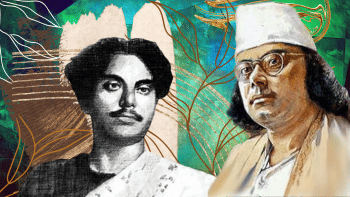
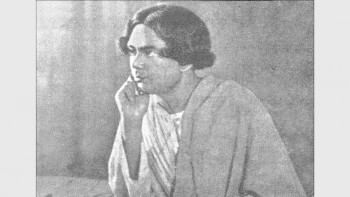
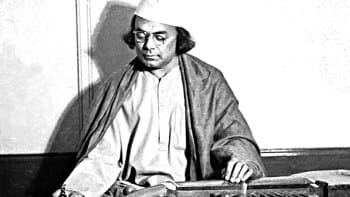






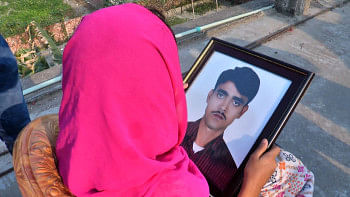
Comments